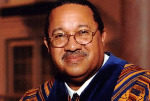Playback speed:
For part two of this six-part series on the love that comes from God our Father, we will look at the following verses. These form the Christian foundation of divine love upon which the Christian life stands.
You Are!
- Loved by Jesus: As the Father hath loved me, so have I loved you: continue ye in my love. John 15:9
- Loved by the Father: For God so loved the world, that he gave his only begotten Son, that whosoever believeth in him should not perish, but have everlasting life. John 3:16
- Loved through the Spirit: And hope maketh not ashamed; because the love of God is shed abroad in our hearts by the Holy Ghost which is given unto us. Romans 5:5
- No Greater Love: Greater love hath no man than this, that a man lay down his life for his friends. John 15:13
- God is Love: And we have known and believed the love that God hath to us. God is love, and he that dwelleth in love dwelleth in God, and God in him. 1 John 4:16
- No Separation from love: Nor height, nor depth, nor any other creature, shall be able to separate us from the love of God, which is in Christ Jesus our Lord. Romans 8:39
Loved by the Father
The following Commentary by Albert Barnes also found in e-SWORD
Loved by the Father: For God so loved the world, that he gave his only begotten Son, that whosoever believeth in him should not perish, but have everlasting life. John 3:16
For God so loved – This does not mean that God approved the conduct of men, but that he had benevolent feelings toward them or was “earnestly desirous” of their happiness. God hates wickedness, but he still desires the Happiness of those who are sinful. “He hates the sin but loves the sinner.” A parent may love his child and desire his welfare yet be strongly opposed to the conduct of that child. When we approve the conduct of another, this is the love of complacency; when we desire simply their happiness, this is the love of benevolence. The world – All mankind. It does not mean any particular part of the world, but man as man – the race that had rebelled and deserved to die. See John 6:33; John 17:21. His love for the world, or all mankind, in giving his Son, was shown by these circumstances:
1. All the world was in ruin and exposed to the wrath of God.
2. All people were in a hopeless condition.
3. God gave his Son. Man had no claim on him; it was a gift – an undeserved gift.
4. He gave him up to extreme suffering, even the bitter pains of death on the cross.
5. It was for all the world. He tasted “death for every man,” Heb 2:9. He “died for all,” 2 Cor 5:15. “He is the propitiation for the sins of the whole world,” 1 Jn 2:2.
That he gave – It was a free and unmerited gift. Man had no claim: and when there was no eye to pity or arm to save, it pleased God to give his Son into the hands of men to die in their stead, Gal 1:4; Rom 8:32; Luk 22:19. It was the mere movement of love; the expression of eternal compassion, and of a desire, that sinners should not perish forever. His only-begotten Son – This is the highest expression of love of which we can conceive. A parent who should give up his only son to die for others who are guilty if this could or might be done – would show higher love than could be manifested in any other way. So it shows the depth of the love of God, that he was willing. to give his only Son into the hands of sinful men that he might be slain and thus redeem them from eternal sorrow.
Notes at John 1:14 from Albert Barnes in ESWORD:
John 1:14
And the Word was made flesh –
The word “flesh” here is evidently used to denote “human nature” or “man.” See Mt 16:17; Mt 19:5; Mt 24:22; Luke 3:6; Rom 1:3; Rom 9:5. The “Word” was made “man.” This is commonly expressed by saying that he became “incarnate.” When we say that a being becomes “incarnate,” we mean that one of a higher order than man and of a different nature assumes the appearance of man or becomes a man. Here it is meant that “the Word,” or the second person of the Trinity, whom John had just proved to be equal with God, became a man or was united with the man Jesus of Nazareth so that it might be said that he “was made flesh.”
Was made – This is the same word that is used in John 1:3; “All things were made by him.” It is not simply affirmed that he was flesh, but that he was made flesh, implying that he had pre-existence, agreeably to John 1:1. This is in accordance with the doctrine of the Scriptures elsewhere. Heb 10:5; “a ‘body’ hast thou prepared me.” Heb 2:14; “as the children are partakers of flesh and blood, he also himself likewise took part of the same.” 1 Jn 4:2; “Jesus Christ is come in the flesh.”
See also 1 Ti 3:16; Phi 2:6; 2 Cor 8:9; Luke 1:35. The expression, then, means that he became a man and that he became such by the power of God providing for him a body. It cannot mean that the divine nature was “changed” into the human, for that could not be; but it means that the λόγος Logos, or “Word,” became so intimately united to Jesus that it might be said that the Logos, or “Word” “became” or “was” a man, as the soul becomes so united to the body that we may say that it is one person or a man.
And dwell among us – The word in the original denotes “dwelt as in a tabernacle or tent;” and some have supposed that John means to say that the human body was a tabernacle or tent for the λόγος Logos to abide in, in allusion to the tabernacle among the Jews, in which the Shechinah, or visible symbol of God, dwelt; but it is not necessary to suppose this. The object of John was to prove that “the Word” became “incarnate.” To do this, he appeals to various evidences. One was that he “dwelt” among them; sojourned with them; ate, drank, slept, and was with them for years so that they “saw him with their eyes, they looked upon him, and their hands handled him” 1 Jn 1:1. To “dwell in a tent with one” is the same as to be in his family; and when John says he “tabernacled” with them, he means that he was with them as a friend and as one of a family, so that they had full opportunity of becoming familiarly acquainted with him, and could not be mistaken in supposing that “he was really a man.”
We beheld his glory
– This is a new proof of what he was affirming – “that the word of God became man.” The first was, that they had seen him as a man. He now adds that they had seen him in his proper glory “as God and man united in one person,” constituting him the unequaled Son of the Father. There is no doubt that there is a reference here to the transfiguration on the holy mount. See Mat 17:1-9. To this same evidence, Peter also appeals, 2 Pe 1:16-18. John was one of the witnesses of that scene, and hence he says, “We beheld his glory,” Mark 9:2. The word “glory” here means majesty, dignity, and splendor.
The glory as of the only-begotten of the Father – The dignity which was appropriate to the only-begotten Son of God; such glory or splendor as could belong to no other. and as properly expressed his rank and character. This glory was seen eminently on the mount of transfiguration. It was also seen in his miracles, his doctrine, his resurrection, and his ascension, all of which were such to illustrate the perfections and manifest the glory that belongs only to the Son of God.
Only-begotten—John never applies this term to anyone but Jesus Christ. He applies it five times to the Saviour: John 1:14, John 1:18, John 3:16, John 3:18, and 1 Jn 4:9. It means literally an only child. As an only child is especially dear to a parent, it means one who is especially beloved. Compare Gen 22:2, Gen 22:12, Gen 22:16, Jer 6:26, and Zec 12:10. On both these accounts, it is bestowed on the Saviour.
1. He was eminently the Son of God, sustaining a special relation to Him in His divine nature, exalted above all human beings and angels, and thus worthy to be called, by way of eminence, His only Son. Saints are called His “sons” or children because they are born of His Spirit or are like Him, but the Lord Jesus is exalted far above all and deserves eminently to be called His only-begotten Son.
2. He was especially dear to God, and therefore this appellation, implying tender affection, is bestowed upon him.
Full of grace and truth – The word “full” here refers to the “Word made flesh,” which is declared to be full of grace and truth. The word “grace” means “favors,” gifts, and acts of beneficence. He was kind, merciful, gracious, doing good to all, and seeking man’s welfare by great sacrifices and love, so much so that it might be said to be characteristic of him, or he “abounded” in favor to mankind. He was also “full of truth.” He declared the truth. In him was no falsehood. He was not like the false prophets and false Messiahs, who were wholly impostors, nor was he like the emblems and shadows of the old dispensation, which were only types of the true, but he was truth itself. He represented things as they are and thus became the “truth” and “the way and the life.”
- Part One: Loved by Jesus
- Part Two: Loved by the Father
- Part Three: Loved through the Spirit
- Part Four: No Greater Love
- Part Five: God is Love
- Part Six: No Separation from God
ESWORD BIBLE SOFTWARE FREE DOWNLOADS
- DESKTOP PC: DOWNLOAD FROM THIS PAGE
- APPLE iPhone $3.99
- ANDROID





